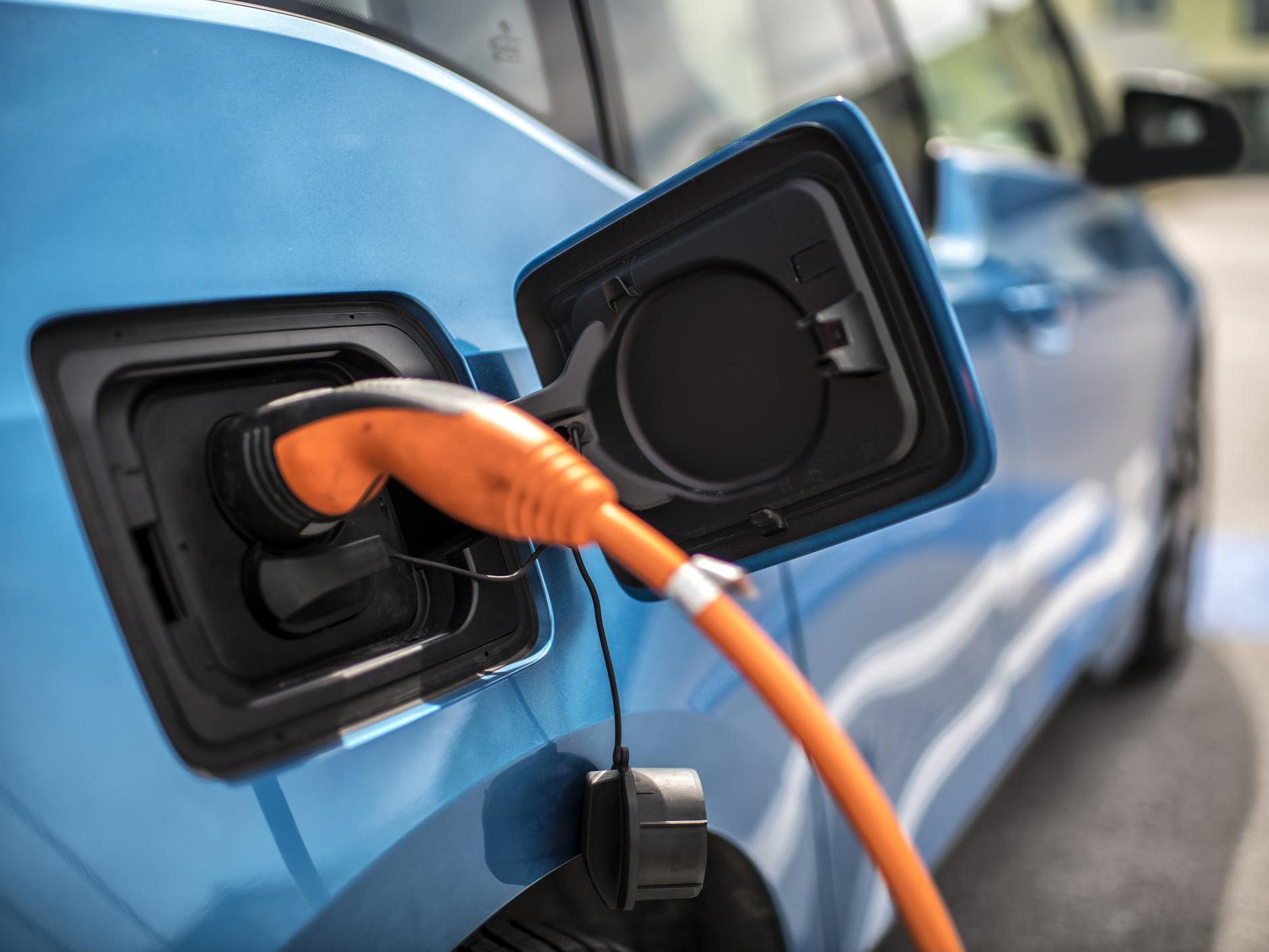New European emissions limits for cars risk triggering influx of ‘fake electric’ vehicles, green group warns
Environmental group concerned rules will allow manufacturers to lean on plug-in hybrids that produce emissions comparable with petrol and diesel cars

Car manufacturers could take advantage of new European emissions rules to push sales of “fake electric” vehicles, green transport campaigners have warned.
EU leaders agreed on a plan this week to cut CO2 pollution from new cars by over a third by 2030, including measures to incentivise the rollout of electric vehicles.
But green group Transport & Environment said companies could use high-polluting “plug-in hybrid” vehicles to supply half of all the low emission cars required to comply with stricter targets.
While this would meet goals on paper, the group warned that if the industry takes this path of least resistance it would jeopardise the continent’s climate targets.
Currently the plug-in hybrid market is dominated by large SUVs with small batteries that are rarely charged due to their limited range.
This means that while these vehicles emit pollution within the 50g CO2/km limits set for low-emission vehicles in the laboratory, on the road they tend to pump out as much CO2 as petrol or diesel cars.
"Act now or swim later" - Children worldwide protest climate change
Show all 38“These types of ‘fake’ plug-in hybrids on the road often emit more than 100g of CO2 in the real world, plus they are never charged,” said Julia Poliscanova, clean vehicles manager at Transport & Environment.
Such cars – which the group says are built to achieve compliance at minimum cost – were not initially meant to count towards targets, but were included on the request of car manufacturing nations.
A spokesperson from the European Automobile Manufacturers’ Association said the decision agreed by EU authorities meant plug-in hybrids would count less than cleaner vehicles.
“Under this mechanism all vehicles that emit less than 50g CO2/km are counted using a formula that distinguishes based on a car’s performance: battery electric vehicles therefore count for more than plug-in hybrid electric vehicles,” they said.
However, analysis by Transport & Environment suggested that by incorporating plug-in hybrids, manufacturers could sell millions of these models at the expense of truly electric vehicles, and still hit 2030 targets.
In their “worst case scenario”, the group predicted half the electric vehicles sold would be these relatively high-emission models.
“The way standards have been put in place they can go either way – if manufacturers implement them in good faith, and there are incentives to improve the quality of electric cars they put on the market, this regulation and new CO2 standard can bring a lot of good electric vehicles in the future,” said Ms Poliscanova.
“But manufacturers can also choose, if left unmanaged, to just do the minimum and flood the market with these compliance plug-in hybrids, which on paper allow them to meet the regulations but in reality do nothing to reduce emissions in the real world.”
The group says there is evidence that manufacturers are already doing this, with plug-in models on the market that emit only slightly below the 50g CO2 threshold.
They said governments including the UK should put in place support and tax schemes that incentivise zero-emission vehicles and limit plug-in hybrids to ones that have more powerful batteries.
However, Mike Hawes, chief executive of the Society of Motor Manufacturers and Traders, said Transport & Environment’s suggestions were “utter nonsense”.
“Manufacturers are challenged – both by regulation and consumer expectation – to drive down carbon emissions.
“There are a variety of technologies that can help achieve this, including efficient petrol and diesel engines, hybrids, plug-in hybrids, battery electric and even hydrogen vehicles.
“The choice is there to enable motorists to consider the best technology for their driving needs and the industry will continue to play its role in helping address climate change and air quality concerns.”
While the UK still provides some government support for plug in hybrids such as lower car tax rates, it has scrapped the generous grants previously offered for these vehicles.
“Although plug-in hybrid vehicles are among the cleanest on the market, since October 2018 our Plug-in Car Grant funding has only focused on zero emission models,” said a spokesperson from the Department for Transport.
Across Europe, transport contributes around a quarter of greenhouse gas emissions, with cars and vans making up almost two thirds of these emissions. In the UK transport is the highest emitting sector.
The British government has faced criticism for its proposal to ban sales of new petrol and diesel cars by 2040, which campaigners say is not soon enough.
Subscribe to Independent Premium to bookmark this article
Want to bookmark your favourite articles and stories to read or reference later? Start your Independent Premium subscription today.

Join our commenting forum
Join thought-provoking conversations, follow other Independent readers and see their replies